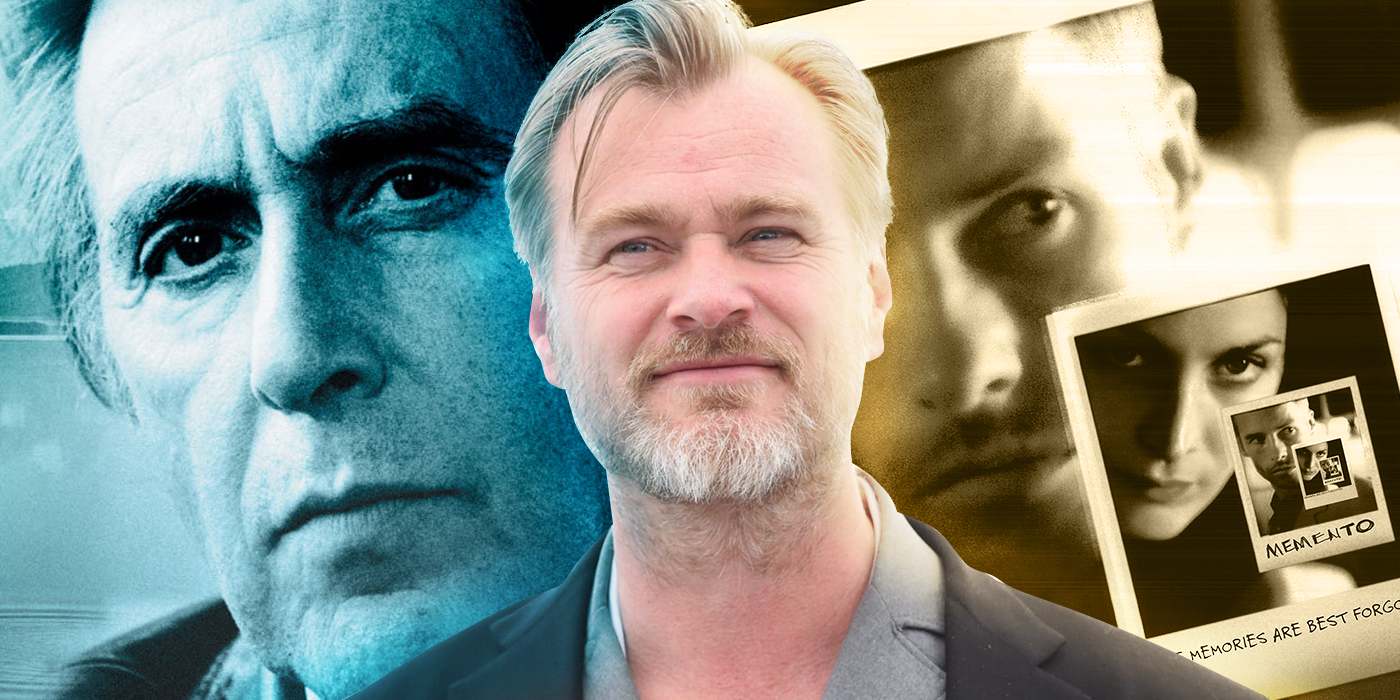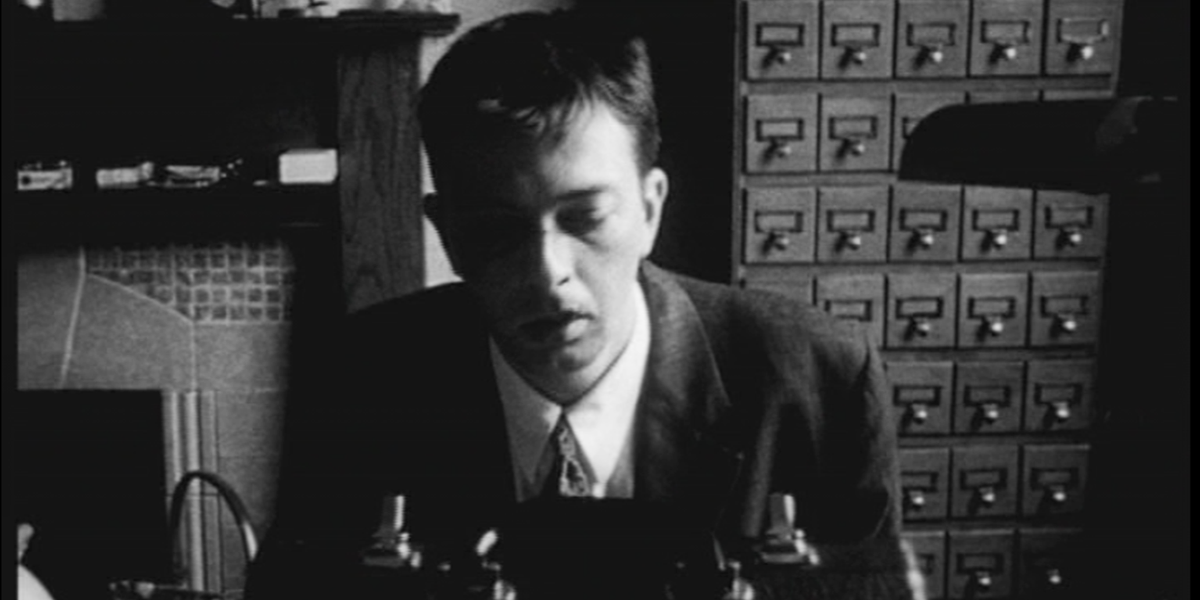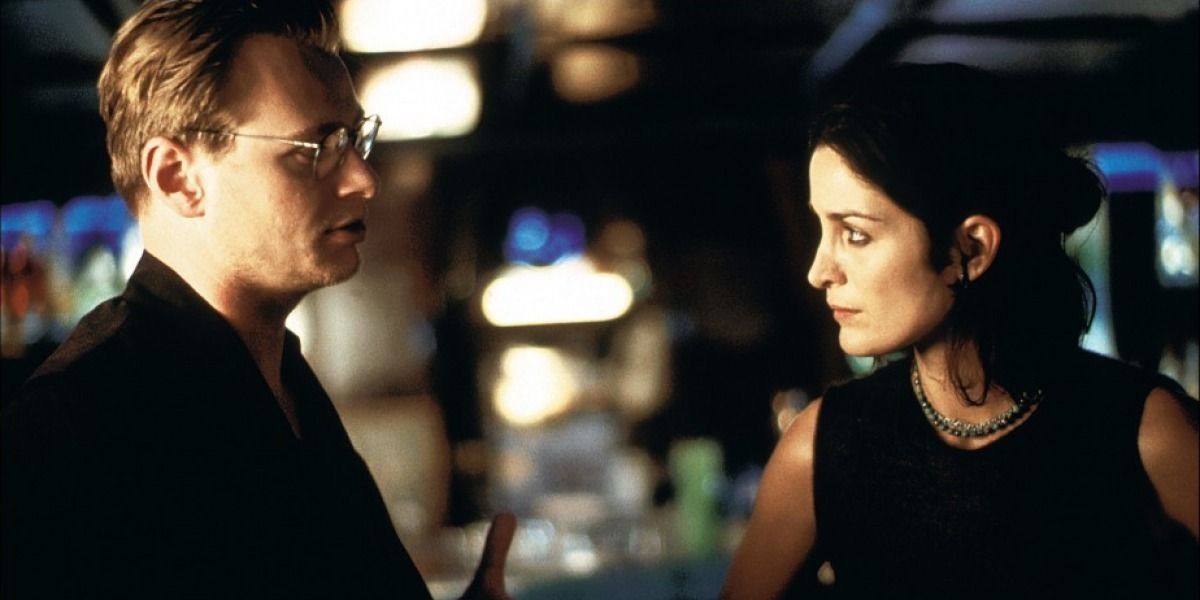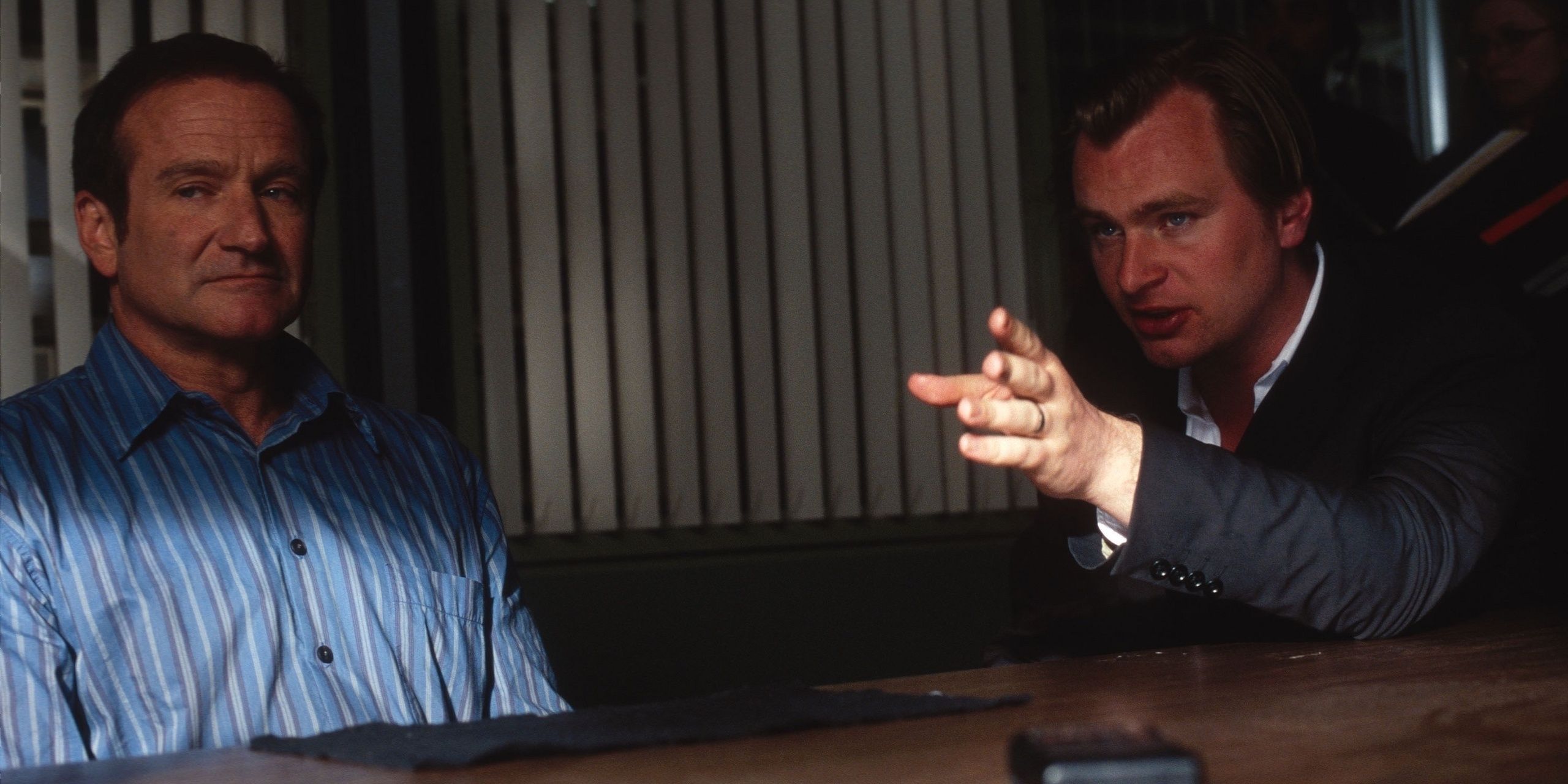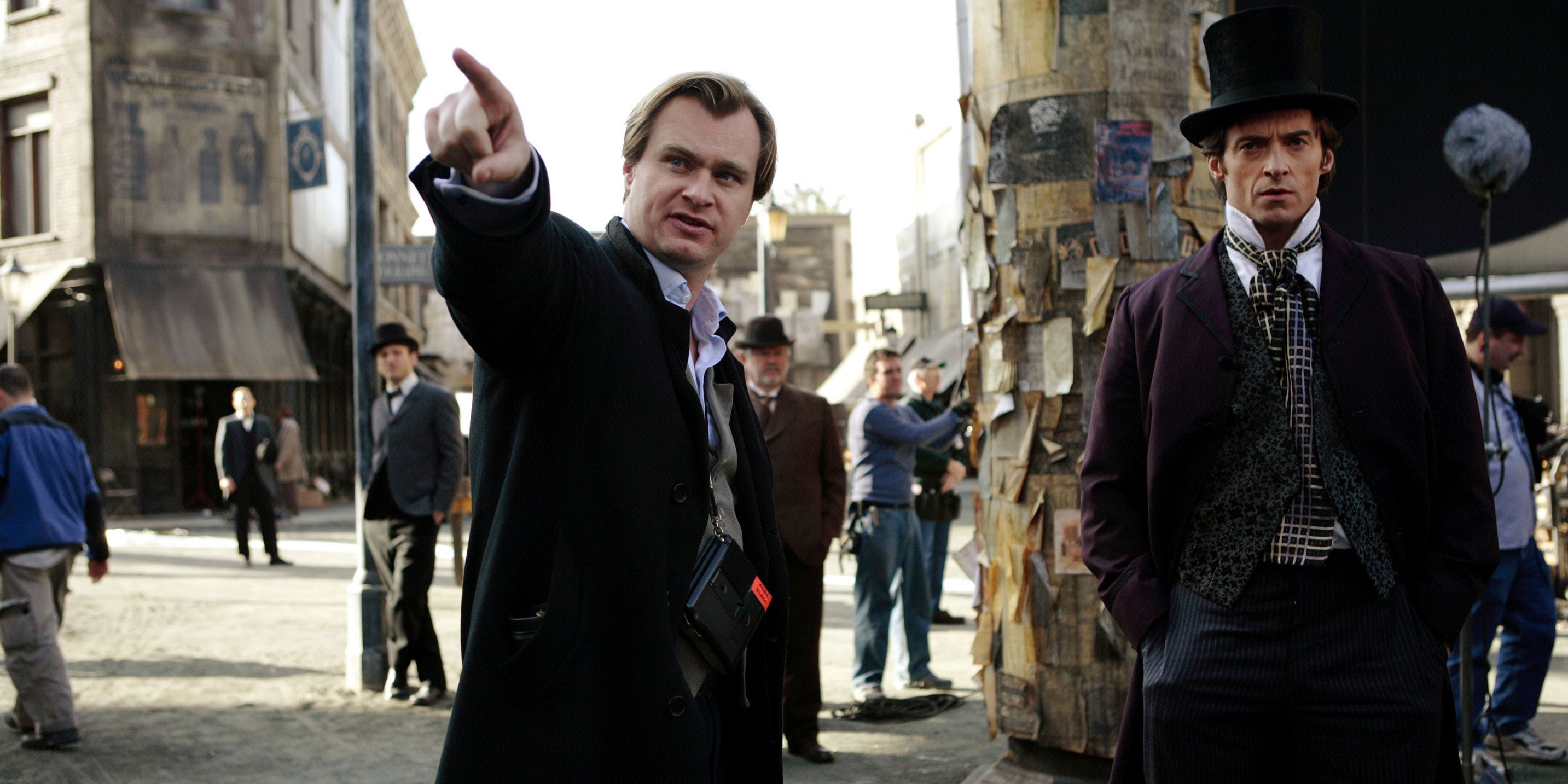[Editor's note: The following contains spoilers for The Prestige.]
2020’s Tenet was a singular moment of reckoning for Mr. Christopher Nolan. Narratively and aesthetically, it’s as pure a crystallization of all his impulses and obsessions as he’ll ever make — so much so it becomes a nearly abstracted viewing experience. And industry-wise, it just about broke everything Nolan has banked on as a noted, celebrated, big-budget blockbuster filmmaker. It came out during a pandemic when people weren’t going to a theater; he insisted on releasing it in theaters only; it didn’t make much money; it likely prompted Warner Bros., Nolan’s home studio for so long, to release their entire 2021 film slate day-and-date on HBO Max; that prompted Nolan to release a series of inflammatory comments about HBO Max and Warner Bros; and that prompted Nolan and WB to part ways. Like so many set pieces in Tenet, the film’s release seemed to explode and implode everything about Nolan’s entire situation simultaneously. What on earth can, should Nolan do next?
In line with Nolan’s most favored time trickery, what if his way forward… is backward?
Nolan broke through with two low-budget feature films, 1998’s Following (made for a scant $6,000) and 2000’s Memento (made for a slightly less scant but still pretty scant $5 million). In watching Following, I’m struck with the same feelings as watching Robert Rodriguez’s El Mariachi: It doesn’t matter how expensive the film is; the person who made this is a born, bonafide, instinctual filmmaker through and through. There’s a precision and clarity in every decision made in Following, in every shot, cut, and especially every moment of purposeful roughness and bumpiness. Style oozes throughout the brief, 69 minute picture, its gritty black-and-white 16mm photography feeling tactile and raw in a way Nolan has rarely ever captured again, even as he blows up the size of his film stock and increases the amount of his practical visual effects. Following also possesses the capacity to shock. When you’ve seen enough of Nolan’s big-budget action work, you can start to tune out his depictions of violence as loud, broad, chaotic, and even meaningless sound and fury (that military finale in Tenet, for example). But in Following, the moments of violence are legitimately scary; a sequence involving a hammer attack froze me in my seat, especially thanks to its impeccable sound design.
Nolan and his team are masters of craft, using all the tools of cinema with startling command. I’m not asking him to suddenly shift back to purposefully more antiquated equipment; I’m just asking his purity in craft to match up with a purity in mood, genre, and storytelling again. Following’s story has a bit of a high concept — an aspiring writer who loves following people falls under the sway of a genuine criminal — but primarily feels like a pure crime piece. As such, everything about the screenplay feels more organic, more potent, and more coherent. Even the requisite Nolan scenes of “a cool expert explaining the rules of the film to another character” track and hit harder because of their legibility and their more basic relationship to the genre they inhabit. With this purity of genre, Nolan’s script has more room to get rough, adult, and even ugly in a fascinating way. Nolan’s recent films have a strange sense of chasteness in their characters; in Following, sex, kinkiness, depravity, and a healthy dose of swear words cut and complicate in appealing ways. Watching Following, I get the feeling that this filmmaker didn’t have money or traditional spectacle to rely on, so he had to invent and improvise. That’s a space I’d love to see Nolan inhabit again.
There are similar feelings of “this is so pure” and “this is so complex” while watching Memento, the film that put Nolan on the map. Obviously, it’s got a very high concept that has permeated throughout the rest of Nolan’s filmography, down to the central action hook of Tenet — the thing moves backwards! But there’s a second half to this “gimmick” that gives Memento its fierceness and staying power: The thing moves backwards in order to subjectively communicate its main character’s state of being. Both Memento and Following are interested in people, not just ideas (Tenet, conversely, is so obsessed with ideas it calls its main character “Protagonist”). Not only am I, thanks to Nolan’s inventive filmmaking, completely tracked to Guy Pearce’s journeys, fears, and horrific discoveries, I’m also completely blindsided by the idiosyncrasies and goals of the colorful supporting cast. Joe Pantoliano, Mark Boone Junior, and especially Carrie-Anne Moss (is it a feature or a bug that Nolan’s first two low budget features, with Lucy Russell in Following, have some of his best, most intriguing, most agency-filled female characters?) give the film such a feeling of virility, of naturalized world-building, of intentional status in the pantheon of crime fiction. It’s, simply, a neo-noir story about a detective figure trying to solve a case. And instead of muddying the waters with more and more spectacle and scope, Nolan does so with a single, character-driven focus on time, filling every crevasse with some lovely dirt to boot. It’s a picture that bites rather than barks.
After Memento, Nolan made two mid-budget, $40 million-ish films, his last two to date that would cost less than $100 million to make: 2002’s Insomnia and 2006’s The Prestige (in between them, of course, was a little 2005 movie called Batman Begins). Insomnia, like his first two films, is a crime piece. In fact, it’s even more explicitly dedicated to the detective and neo-noir narrative, centering on a morally tortured cop (Al Pacino) on a murder case, the horrible mistake he makes, the depraved criminal threatening to blackmail him (Robin Williams), and the one promise of light in an otherwise bleakly dark world (Hilary Swank, another well-drawn female character from Nolan, whom I’d argue is the film’s “morally correct antagonist,” which is such an interesting role to play). If there is a Nolanesque gimmick to the proceedings, it’s a simple, ironic piece of thematic trickery: This world of darkness has unending light, thanks to Alaska’s propensity for constant sunlight in certain months. Thus, even though Pacino (whose willingness to dive into the moral horrors of his character make me crave another viciously antiheroic protagonist from Nolan) is diving further and further into the darkness of his lies, he cannot hide from the light of truth. Much has been made of Nolan’s big-budget movies borrowing from the best crime films, especially the Batman/Joker dynamic in The Dark Knight, but to see him play a crime narrative so straight, so small, and so intimate in Insomnia makes me hungry for more. When Pacino and Williams meet, as Christian Bale and Heath Ledger eventually do in Dark Knight, it’s not punctuated by aggressive cuts and smashes of violence. It’s staged slowly, in long takes. Nolan allows his actors to act, allows them to tell his story. He understands it doesn’t need anything else.
That leads us to The Prestige, which I would argue is a precipice film for Nolan, one that represents him teetering between the edges of low-to-mid budget and big-budget filmmaking, and one that ultimately presents a lesson I’m not sure Nolan took in real life. Unlike the relative purities of the crime tales in Following, Memento, and Insomnia, The Prestige is just stuffed with stuff. Magician wars, the current wars, drunk doppelgangers, tons of in-universe prosthetic makeup, a goddamn electricity machine that clones people — Nolan is taking this final swing of mid-budget freedom and using it to simply fill the running time with his pet obsessions (including the concept of obsession). While Nolan certainly stuffs his big-budget films with “stuff” too (especially Interstellar, which I think plays as a companion piece to Prestige), this tale moves with a sense of freedom, of imagination, of… well not quite “glee,” given the dour mood of the picture, but certainly of “can you believe anyone’s letting me do this?”
It’s almost too easy to apply a metafictional take to The Prestige, but it’s almost too accurate, too. Dueling magicians Bale and Hugh Jackman try to one up each other in their routines, their acts of violence, their relationships with women (Rebecca Hall and Scarlett Johansson, giving great performances, but unfortunately representing a touch of a slide into Nolan’s big-budget propensity for “women as tools for men”). They represent two different approaches to performing magic (to telling stories, to making films), with Bale our more scrappy, simplistic, bare-bones, “low budget” magician/filmmaker and Jackman our more finessed, grandiose, high-tech, “big budget” magician/filmmaker. These characters and their impulses divide due to trauma, but can’t help bounce off each other, sending sparks and conflicts flying at every meeting point.
All of this culminates with a need to own one trick, in which the same person seems to enter a door on one side of the stage, then instantaneously exit a door on the other side of the stage. Bale performs this trick with his usual lack of performance-based showmanship, but the raw power inherent in it captivates Jackman to the point of madness. He must know how it’s done. At every single step of the way, Jackman’s trick engineer Michael Caine insists upon the simplest solution: Bale is using a double, and so should we. Jackman kowtows to this request, while harboring the belief that it can’t have been that simple. He sinks fortunes of money, throws away personal and professional relationships, and willingly steps into a Nikola Tesla (David Bowie) produced tower of electricity to try and pull off this trick in the complicated, high-falutin’ way it must have been done.
Ultimately, Jackman does produce the same effect with his bonkers, complicated, high-budgeted approach. But ultimately, he was wrong the entire time. Bale did, indeed, produce the trick the simplest, purest way possible, the way Caine insisted the entire time: Using a double. And Jackman only finds this out right before his death.
In a sense, Nolan’s typical approach of Warner Bros. released, big-budget, absolutely stuffed movies might have died with Tenet. So why not go back to the simpler, purer, more modestly budgeted, and just as effective approach?

